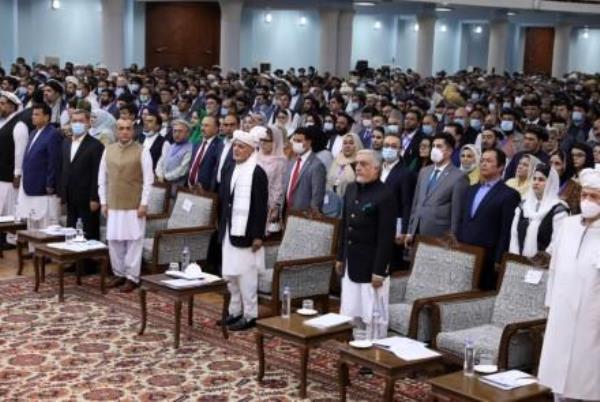The Loya Jirga, or grand assembly, was held on Friday with over 3,200 delegates and has been met with mixed reactions, with many people calling it “symbolic” and saying that the government leaders should not impede the peace process with such special measures.
The Jirga was held to decide the fate of the 400 Taliban prisoners who are accused of serious crimes.
According to government data, 156 of them have been sentenced to death, 105 of them are accused of murder, 34 of them are accused of kidnaping that led to murder, 51 of them are accused of drug smuggling, 44 of them are on the blacklist of the Afghan government and its allies, 6 of them are accused of other crimes, 4 are unknown.
The list of 5,000 prisoners was given to the Afghan government by the Taliban to be released ahead of intra-Afghan negotiations that are expected to be held in Doha.
So far, the government has released 4,600 of the prisoners on the Taliban list, and an additional 500 who were not on the Taliban list. These last 500 were freed during Eid in response to the Taliban’s announcement of a ceasefire.
“The prisoners are the citizens of our own country. The Jirga should agree on their release,” said Abdul Rahman, a Kabul resident.
“The government is spending Afs330 million ($4.2 million) for the Jirga while we are living under the poverty line,” said Hashmatullah Rahimi, a Kabul resident.
Security force members who have been assigned to ensure the safety of the two-day Loya Jirga said they hope for an enduring peace and an end to violence.
“They should come and make peace and end the calamity and war in the country,” said Amrullah, a lecturer at Marshal Mohammad Qasim Fahim Military Academy.
“We have been here for the last three days and we hope that the Jirga will help peace in our country,” said Samim-Ur-Rahman, an Army soldier.
A number of police force members who are also assigned to ensure the security of the grand assembly said they have not been paid for the last two months but added that they remain hopeful that violence will end in the country.
“Our salaries were paid every month, but we have not been paid for the last one and a half months,” said Toofan, a police officer.
“We are always making efforts to ensure a safe and peaceful environment for our countrymen,” said Fayaz, a police officer.













